Historical places in Oklahoma offer a rich journey through Native American heritage, pioneer resilience, and the transformative oil boom. Home to 39 tribal nations, the state preserves sacred lands, cultural centers, and museums that honor Indigenous stories. Civil War sites and Route 66 landmarks highlight Oklahoma’s pivotal role in shaping American history. From the Trail of Tears memorials to Art Deco courthouses and boomtown relics, each site reveals a unique part of the Sooner State’s identity. These destinations reflect a tapestry of cultures, struggles, and triumphs that continue to define Oklahoma today.
Top 10 Historical Places In Oklahoma
Here are 10 of the top historical places in Oklahoma that highlight the state’s rich and diverse past.
1. Oklahoma City National Memorial & Museum
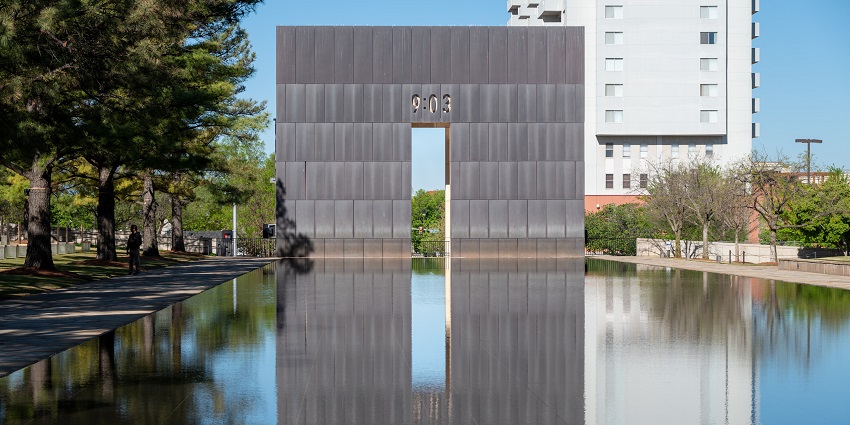
Photo: xiquinhosilva / Wikimedia Commons
This memorial honors the victims, survivors, and rescuers of the 1995 bombing of the Alfred P. Murrah Federal Building. It features a tranquil reflecting pool, a symbolic Field of Empty Chairs, and powerful museum exhibits. Visitors can explore multimedia stories and personal items that bring history to life. It’s a solemn yet inspiring tribute to resilience, community strength, and remembrance in the face of unimaginable tragedy.
Distance From Will Rogers World Airport: 17 km
Distance From Oklahoma City Museum Of Art: 1 km
Places To Eat: Vast, Kitchen No. 324, Cheever’s Café
2. Fort Sill National Historic Landmark And Museum
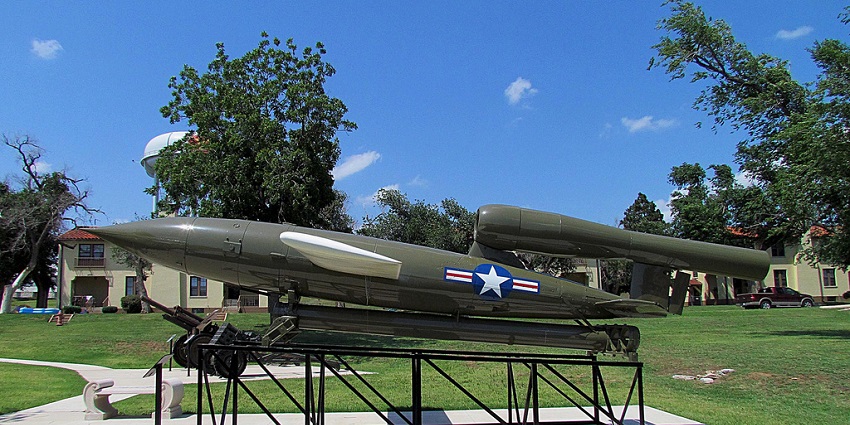
Photo: duggar11 / Wikimedia Commons
Established in 1869, Fort Sill remains an active military base and a key site in American military history. The museum highlights frontier life, Buffalo Soldiers, and Native American figures like Geronimo, who was imprisoned here. The artillery displays and original frontier buildings offer insight into 19th-century military life. It’s a blend of heritage and honor that continues to serve both history and national defense today.
Distance From Lawton: 5 km
Places To Eat: The Silver Spoon, Wayne’s Drive Inn, Mutti’s German Restaurant
3. Cherokee Heritage Center
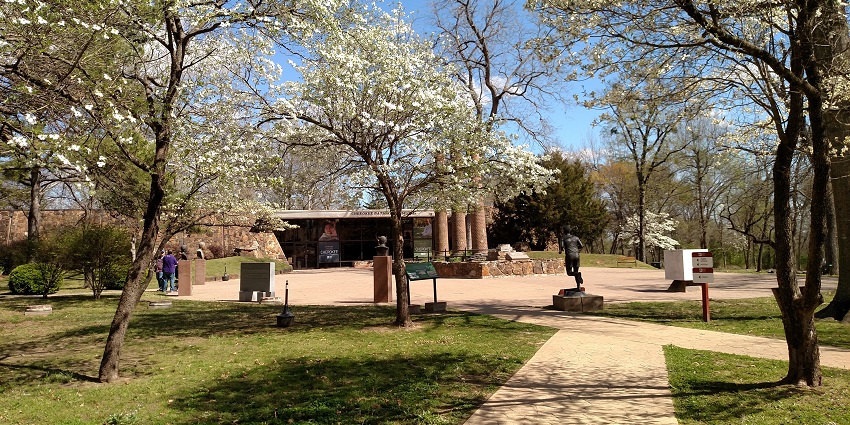
Photo: National Trails Office (US National Park Service) / Wikimedia Commons
Located in Tahlequah, this center preserves and celebrates Cherokee history and culture. Visitors can walk through Diligwa, a recreated 1710 Cherokee village, explore the Trail of Tears exhibit, and view Cherokee art and artifacts. Interactive demonstrations and educational programs offer a deep understanding of Indigenous heritage. It’s a compelling experience that honors the strength, culture, and stories of the Cherokee people.
Places To Eat: Sam & Ella’s Chicken Palace, Fish’s Bar-B-Que, The Branch
4. Chisholm Trail Heritage Center
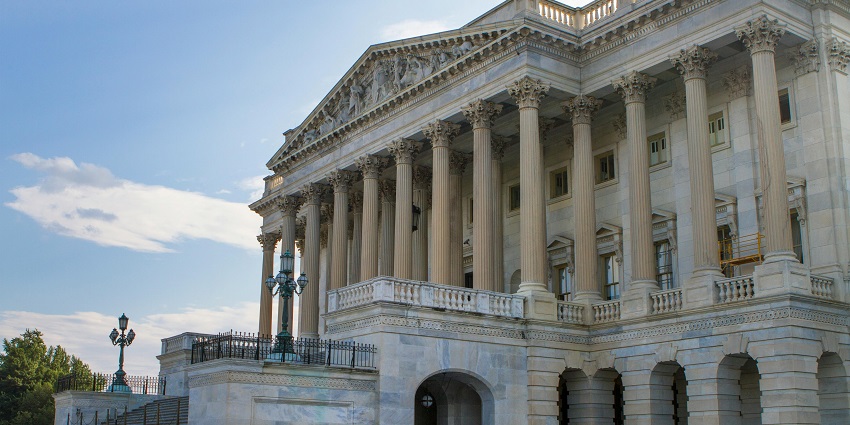
Photo: Ramaz Bluashvili / Pexels / Image For Representation Only
This center in Duncan celebrates the legendary cattle-driving trail that helped define the American West. Interactive exhibits, art galleries, and a 4D theater immerse guests in cowboy life. You’ll learn about trailblazers, ranchers, and Native interactions along the trail. Its engaging, hands-on approach makes it a hit with families and history buffs alike. The museum tells an unforgettable story of grit, cattle, and the Old West.
Places To Eat: Jonny’s at Oak Tree, Wright’s Family Steak House, Taste Island
5. Route 66 Museum
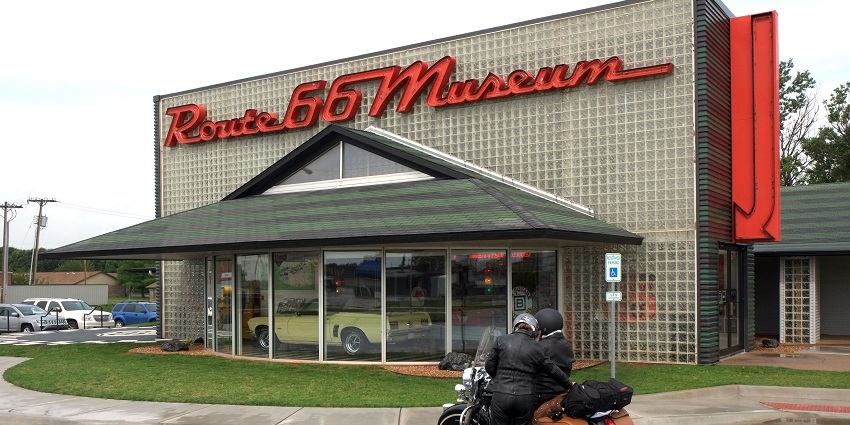
Photo: Gorup de Besanez / Wikimedia Commons
Travelers can journey through the iconic “Mother Road” at this museum in Clinton. Exhibits recreate diners, motels, and gas stations from different Route 66 eras. With classic cars, music, and pop culture, it’s a nostalgic ride through America’s mid-20th-century travel boom. Perfect for all ages, it highlights the role Oklahoma played in the rise of U.S. car culture and road-trip Americana.
Places To Eat: White Dog Hill, Gayla’s Café, Picante Grill
6. Spiro Mounds Archaeological Center
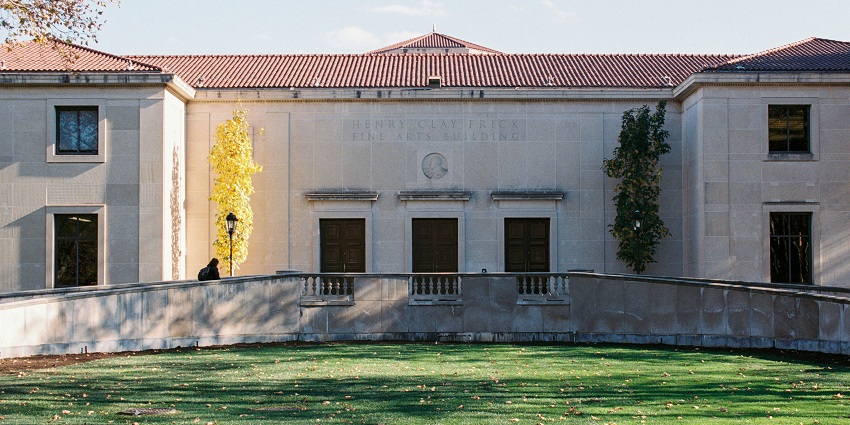
Photo: Zhen Yao / Unsplash / Image For Representation Only
Spiro Mounds is one of North America’s most important Native American archaeological sites. The site dates back over 1,000 years and reveals a complex, advanced Mississippian culture. Visitors can walk interpretive trails, view burial mounds, and explore ancient artifacts at the visitor center. It offers a fascinating look at a thriving pre-Columbian civilisation that influenced regions far beyond Oklahoma.
Distance From Fort Smith: 25 km
Places To Eat: Dobson’s, El Celaya, CJ’s Café
7. Oklahoma State Capitol
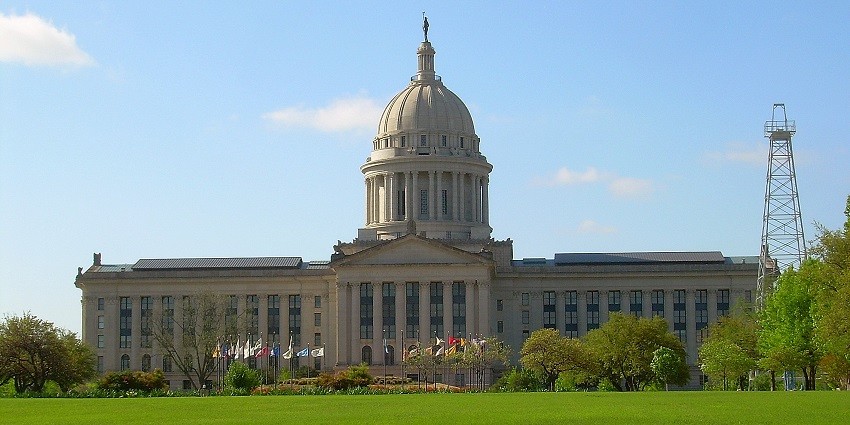
Photo: Caleb Long / Wikimedia Commons
Completed in 1917, the Oklahoma State Capitol is the only capitol in the U.S. with an active oil rig on its grounds. The Greco-Roman design features murals, statues, and stained glass reflecting Oklahoma’s rich history. Guided tours offer insight into government functions and the state’s cultural identity. Don’t miss the grand dome and the rotating art exhibitions celebrating Oklahoma artists and Indigenous heritage.
Distance From Bricktown: 3 km
Places To Eat: Florence’s Restaurant, Patrono, Red PrimeSteak
8. Woolaroc Museum & Wildlife Preserve
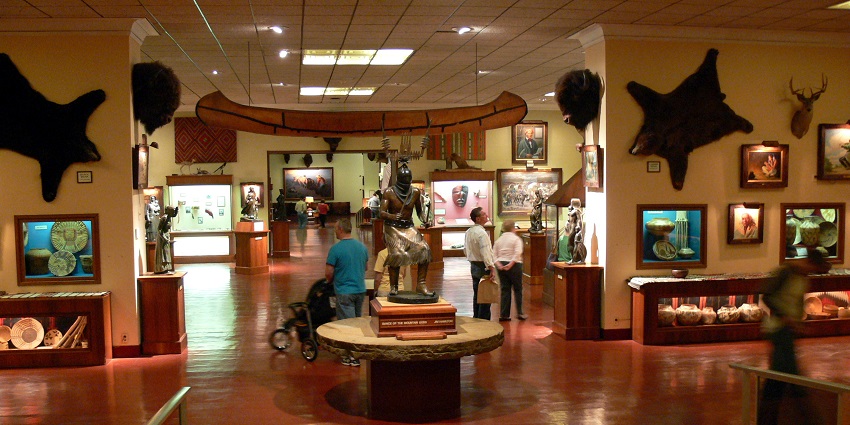
Photo: Wolfgang Sauber / Wikimedia Commons
Founded by oilman Frank Phillips in 1925, Woolaroc is a unique cultural and natural treasure nestled in the Osage Hills of Oklahoma. The site blends a world-class museum with a vast wildlife preserve, showcasing Western art, Native American artifacts, and an impressive collection of rare Colt firearms. Scenic drives allow visitors to encounter bison, elk, and longhorns, reflecting Oklahoma’s frontier spirit, oil heritage, and artistic legacy.
Distance From Bartlesville: 20 km
Places To Eat: Murphy’s Steak House, Painted Horse, Hideaway Pizza
9. Honey Springs Battlefield
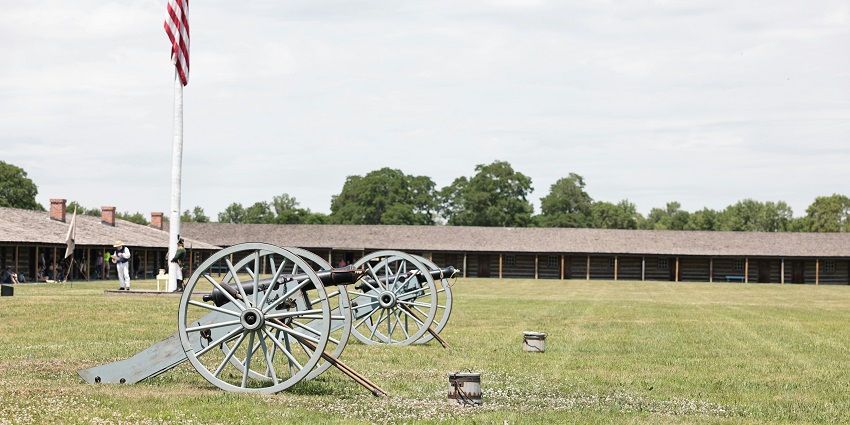
Photo: Chad Brocker / Pexels / Image For Representation Only
This site preserves the largest Civil War battle fought in present-day Oklahoma. The 1863 battle involved Native American, African American, and Hispanic troops, a rare blend for the era. Interpretive trails, cannons, and a modern visitor center tell the story of this critical clash. The battlefield offers insights into race, alliance, and territory struggles in Civil War history. It’s a must-visit for history enthusiasts.
Distance From Checotah: 10 km
Places To Eat: June’s Restaurant, I Smell Bacon, Katy’s Pantry
10. The Skirvin Hilton Hotel

Photo: ROMAN ODINTSOV / Pexels / Image For Representation Only
Opened in 1911, the Skirvin is one of Oklahoma City’s most storied landmarks. This luxury hotel hosted presidents, jazz legends, and Hollywood stars. Restored to its original elegance, it still operates today. Rich in glamour and ghost stories, it’s a unique blend of history and hospitality. Staying or visiting here feels like stepping into a golden era of Oklahoma’s oil-fueled rise and cultural vibrancy.
Distance From Will Rogers World Airport: 18 km
Distance From OKC National Memorial: 1.5 km
Places To Eat: Park Avenue Grill, Flint, Mahogany Prime Steakhouse
These Historical places in Oklahoma span ancient Indigenous civilisations, Civil War battlegrounds, oil booms, and vibrant Western lore. Each destination tells a compelling tale that invites reflection, pride, and discovery. Whether you’re exploring the solemn grounds of Honey Springs or walking Route 66’s neon path, Oklahoma connects you to the past and present in an unforgettable way. Plan your trip today with TripXL for a heritage-filled trip.
Cover Photo: Oklahoma Legislative Services Bureau / Wikimedia Commons


 WhatsApp
WhatsApp
 Twitter
Twitter









